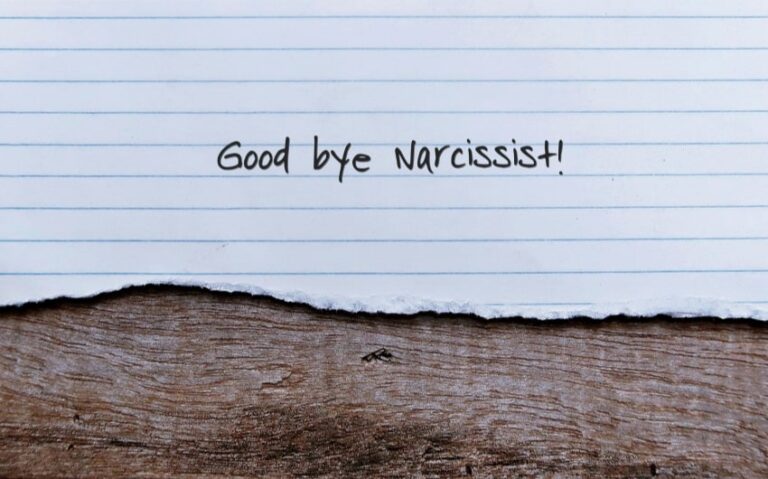Why Is He Ignoring Me? Common Reasons Explained
We’ve all been there – waiting for a response that never comes, and wondering, “why is he ignoring me?” It’s a frustrating and confusing situation that can leave you feeling hurt and uncertain. Understanding the possible reasons behind his silence can help you navigate these feelings and decide your next steps.
In this article, we’ll explore common reasons why he might be ignoring you and offer tips on how to cope. Whether it’s a romantic partner, friend, or colleague, gaining insight into his behavior can provide clarity and peace of mind.
Reasons Why He Might Be Ignoring You

1. He Needs Space
When someone needs space, it often stems from feeling overwhelmed or needing time to process their thoughts and emotions. This need for personal time can be driven by various factors, such as stress from multiple areas of life or the intensity of the relationship. He might be feeling emotionally drained and requires solitude to recharge.
This doesn’t necessarily mean there’s anything wrong with the relationship; it could simply be a matter of needing a break to regain balance and clarity. Individuals often retreat to reflect on their feelings and reset their mental state, especially if they are introverted or highly independent.
2. He Is Busy with Work or Personal Commitments
Life can get incredibly hectic, and sometimes work or personal obligations take precedence over everything else. When he is swamped with deadlines, meetings, or important projects, his focus shifts entirely to managing these responsibilities. Similarly, personal commitments such as family issues, financial problems, or other personal matters can consume a lot of mental and emotional energy.
In such situations, communication might take a backseat, not because he doesn’t care, but because he is overwhelmed and preoccupied. The demands of juggling multiple priorities can leave little room for maintaining regular contact or engaging in conversations, even if he values the relationship deeply.
3. He Is Unsure About His Feelings
Uncertainty about one’s feelings can lead to withdrawal as a way to avoid confrontation or making hasty decisions. If he is confused about his emotions or the direction of the relationship, he might choose to distance himself temporarily. This period of withdrawal allows him to sort out his thoughts and feelings without external pressure. He might be evaluating the relationship, considering his long-term desires, or reflecting on recent interactions.
This introspection is often a protective measure, giving him the space to understand his true feelings before communicating them. This ambiguity can be challenging to navigate, but it often reflects his desire to be honest and thoughtful about the relationship’s future.
4. He Feels Unappreciated or Taken for Granted
Feeling unappreciated or taken for granted can be deeply disheartening. When someone feels that their efforts and contributions are not recognized or valued, it can lead to feelings of resentment and withdrawal. He might have been putting in a lot of effort into the relationship, only to feel that it is not reciprocated or acknowledged.
This perception can cause him to distance himself as a way to protect his emotional well-being. He may feel that his gestures of kindness, support, or affection are overlooked or expected rather than appreciated. This emotional withdrawal is a coping mechanism to avoid further disappointment and to gauge whether his absence will be noticed and missed.
5. He Is Dealing with Personal Issues
Personal issues can encompass a wide range of challenges, including health problems, family conflicts, financial difficulties, or emotional struggles. When someone is dealing with significant personal issues, their ability to engage in regular communication can be severely impacted. He might be experiencing stress, anxiety, or depression, which can make it hard to maintain normal interactions.
These personal challenges can consume a lot of mental and emotional energy, leaving little capacity for maintaining relationships. He might also feel embarrassed or reluctant to share his struggles, preferring to handle them privately. His withdrawal in this context is not necessarily a reflection of his feelings towards you but rather an indication of his internal battle.
6. He Is Influenced by External Opinions
External opinions from friends, family, or colleagues can significantly impact someone’s behavior and decisions. If those close to him have negative opinions about the relationship, he might start to distance himself. This influence can stem from a desire to conform to social expectations, fear of conflict, or concern about how he is perceived by others. He might be swayed by comments or advice suggesting that the relationship is not beneficial for him or that he should explore other options.
This external pressure can lead to confusion and hesitation, causing him to pull away to avoid criticism or to rethink his choices. The impact of external opinions can be powerful, especially if he values the perspectives of those influencing him highly.
7. He Is Testing Boundaries
Testing boundaries is a way for individuals to gauge the limits and dynamics of a relationship. He might be intentionally distancing himself to see how you react and to understand how much effort you are willing to put into maintaining the connection. This behavior can be a means of assessing your level of interest and commitment.
By pulling away, he observes whether you will reach out, how persistent you will be, and how you handle the uncertainty. This kind of testing can stem from insecurity, curiosity, or a need for reassurance. It’s a way to understand the power dynamics and emotional investment in the relationship without direct confrontation.
8. He Has Lost Interest
One of the most challenging reasons someone might ignore you is that they have lost interest in the relationship. This can happen gradually or suddenly, depending on various factors such as changes in personal preferences, unmet expectations, or a lack of emotional connection.
When he loses interest, he might find it difficult to communicate this directly due to fear of hurting your feelings or dealing with a potentially uncomfortable conversation. Instead, he opts to withdraw, hoping that the distance will make the relationship naturally fizzle out. This avoidance can be confusing and painful, but it often reflects his uncertainty or discomfort in expressing his true feelings.
9. He Is Playing Games
In some cases, ignoring behavior can be part of a manipulative tactic to gain control or provoke a reaction. He might be playing games to make you chase him, to test your reactions, or to create a power imbalance in the relationship. This behavior can be a way to assert dominance, keep you off-balance, or maintain the upper hand. He might believe that creating a sense of mystery or uncertainty will make you more interested and invested.
This kind of game-playing is often indicative of deeper issues within the relationship, such as a lack of trust or genuine communication. While it can sometimes be effective in the short term, it typically leads to long-term dissatisfaction and confusion.
10. He Is Seeing Someone Else
When someone begins to see another person, they might start to ignore you to avoid conflict, guilt, or having to explain their actions. He may have developed feelings for someone else and is unsure how to handle the transition between relationships. This can lead to a gradual or sudden decrease in communication as he spends more time with the new person and less time maintaining your relationship.
The desire to keep the new relationship private initially can also result in him distancing himself from you. He might feel conflicted about his feelings and uncertain about how to address the situation without causing hurt. This behavior can be particularly confusing and painful if it seems to come out of nowhere, leaving you to question the sudden change in his behavior.
11. He Feels Pressured
Feeling pressured to make decisions or commitments about the relationship can cause significant stress and lead to withdrawal. If he perceives that there are high expectations regarding the future of the relationship—such as moving in together, getting married, or making other significant commitments—he might feel overwhelmed. This pressure can come from you, his family, his friends, or even from his own internal expectations.
When the pressure becomes too intense, he might pull away as a way to relieve some of the stress and to buy time to think things over. This behavior is a form of self-preservation, allowing him to avoid making rushed decisions or commitments that he’s not ready for. His withdrawal can be a way to regain control over the pace of the relationship and to ensure that any steps forward are taken with careful consideration rather than as a response to pressure.
How to Cope with Being Ignored

Dealing with being ignored can be emotionally challenging and stressful. It’s important to manage your feelings in a healthy way and take proactive steps to maintain your well-being. Here are some strategies to help you cope with being ignored:
Focus on Self-Care
Prioritize activities that promote your mental and physical health. Engaging in hobbies, exercising, meditating, or simply taking time for relaxation can help you manage stress and maintain a positive outlook. Self-care is crucial in maintaining your emotional balance and ensuring that you stay grounded during challenging times.
Communicate Openly
If you feel comfortable, try to have an open and honest conversation with the person who is ignoring you. Express your concerns calmly and without accusations. This can help clear up any misunderstandings and provide you with the clarity you need. Direct communication can sometimes resolve issues that might otherwise remain hidden.
Give Him Space
Sometimes, giving the person space is the best course of action. Allowing him time to process his thoughts and feelings can lead to a more positive outcome for both of you. During this time, focus on your own needs and interests. Respecting his need for space can help alleviate tension and allow both of you to reflect on the relationship.
Seek Support
Reach out to friends, family members, or a therapist for support and advice. Sharing your feelings with trusted individuals can provide comfort and different perspectives on the situation. Support from others can be invaluable in helping you navigate your emotions and making informed decisions. For additional professional resources, you can visit https://www.betterhelp.com/mental-health/.
Stay Positive
Focus on the positive aspects of your life and maintain a hopeful outlook. Engage in activities that bring you joy and fulfillment. Keeping a positive mindset can help you manage the emotional impact of being ignored and prevent you from feeling overwhelmed by negative thoughts.
Set Boundaries
Determine what you are willing to tolerate in the relationship and communicate your boundaries clearly. If the ignoring behavior continues and affects your well-being, it may be necessary to reassess the relationship. Setting and enforcing boundaries is essential for maintaining your self-respect and emotional health.
Consider Moving On
If the person’s ignoring behavior persists despite your efforts to communicate and understand, it might be time to consider moving on. Prioritize your self-respect and seek relationships that are supportive and reciprocal. Moving on can be a difficult decision, but it’s important to recognize when a relationship is no longer healthy for you.
Engage in Personal Growth
Use this time to focus on personal development. Pursue new interests, set goals, and work on self-improvement. Personal growth can help you regain confidence and perspective, making it easier to move forward.
Reflect on the Relationship
Take time to reflect on the dynamics of the relationship. Consider whether the relationship was meeting your needs and whether it was healthy for both parties. Reflection can provide valuable insights and help you make informed decisions about your future interactions.







